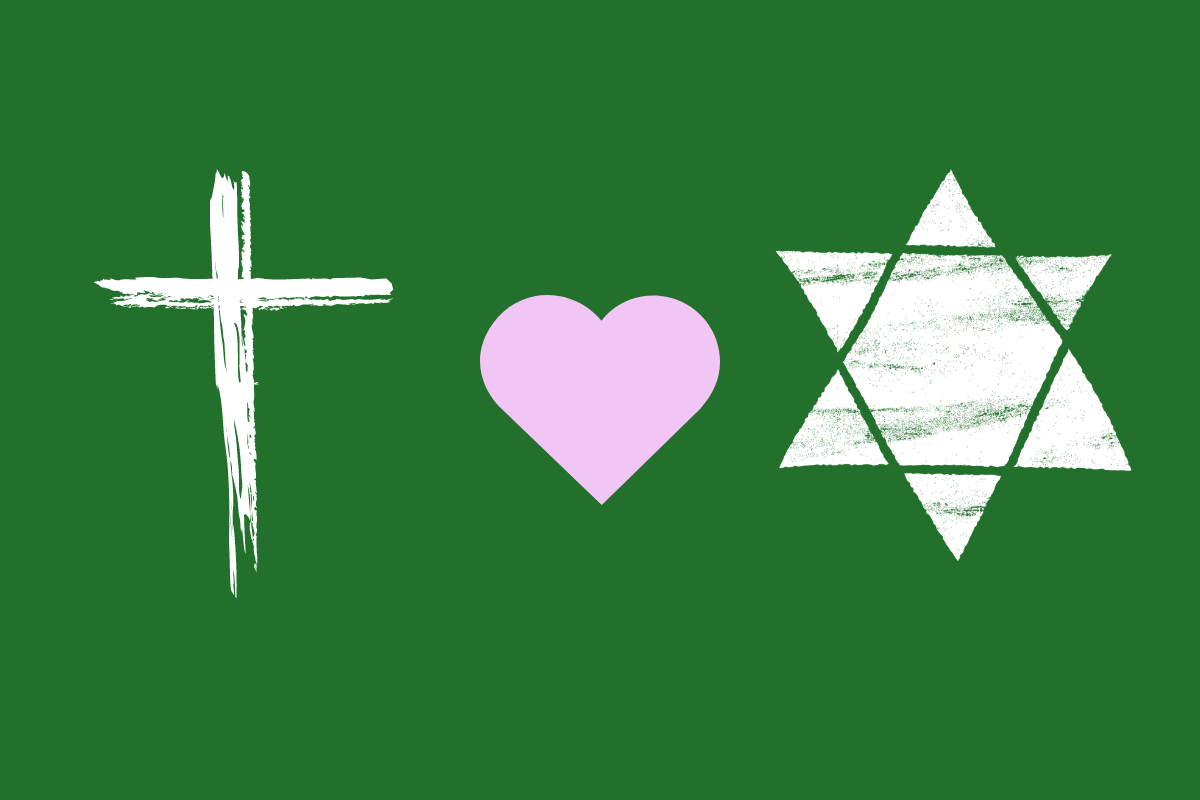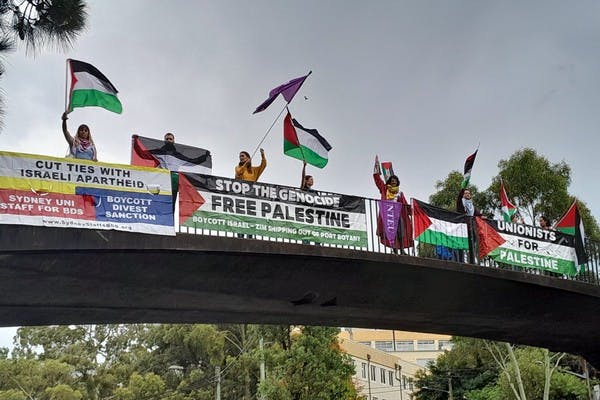Published: 23 March 2020
Last updated: 4 March 2024
SYDNEY STUDENT JEREMY SEGAL was on Netzer Shnat in Israel last Monday, March 16, when the madrichim called him and the other ten Netzer participants together. “At 11am they came to us and said, this is your closing ceremony.”
As the COVID-19 pandemic spreads across the world, Israel diaspora youth programs have faced the difficult decision to either end or keep going. With many programs, including yeshivah and seminary programs, across Israel closing down, Australian youth movements are also looking at how to best respond to the changing situation.
As it stands, Netzer and Bnei Akiva Australia have made the decision to end their Shnat (year-long immersion) programs and bring participants home.
Bnei Australia has suspended its MTA Shnat stream, which sees participants attend Yeshivah and Seminaries, with nine of 32 participants so far returning to Australia, and more on the way. Bnei’s Limmud Shnat stream, which has a more experiential focus and is currently based on Kibbutz, is continuing to run. Of Limmud’s 25 participants, three have returned to Australia on their own accord.
Some of us thought that we would be leaving in a couple of days or a few weeks. It turned out that we had to leave literally the next day.
Hashomer Hatzair (Hashy) and Betar Australia Shnat programs will continue, with their four and two participants respectively under lockdown in the ‘Machon’ campus in Jerusalem, where they usually live and attend classes.
Eight Habonim Dror participants are taking part in the Habonim Olami program, which remains on Machon, but is not under jurisdiction of Habonim Dror Australia. Hineni did not send a Shnat cohort this year.
“Some of us thought that we would be leaving in a couple of days or a few weeks. It turned out that we had to leave literally the next day,” Segal told The Jewish Independent.
Of the 11 Netzer participants, three have decided to stay in Israel for their own reasons. Eight, including Segal, arrived back in Melbourne on Thursday night, and are self-quarantining for two weeks together in a beachside house belonging to one of the participant’s parents.
[gallery columns="1" size="large" ids="34352"]
“At first it was very hard to hear; it was very emotionally impacting. The first thing that comes to your mind is, how could they do this? The whole build-up to Shnat has been so big, with everything that we've learnt in the past.
“For that to be blown out the window is just really disheartening. But I know that they're doing it out of concern for our general health and safety. It's the only way that they can assure us to be as safe as possible to prevent anything from happening,” Segal said.
“The Zionist Federation Australia and the FBI Travel travel agency worked together with along our madrichim (program youth leaders) to get us on a flight. It was incredibly important to be done immediately as we were on the last flight back to Australia.”
Lior Kalisse, the federal Mazkir for Netzer Australia, told The Jewish Independent: "Without a doubt, Netzer Australia is devastated by the decision to cancel the remainder of Shnat Netzer 2020. With this said, the call made by Netzer Olami in concert with all relevant sniffim (branches) was the right one in our eyes.
"As Jeremy noted, we are trying to provide chinuch (education) for the shnatties as they return and we are looking forward to the next year of continuing to foster kvutza.
"The community response has been incredible. It’s been amazing to see that the community, parents and shnatties not only backs us in our decision but also their willingness to provide support, educational and otherwise has been heartwarming."
One of the major differences between Netzer and Bnei and the other youth movements is that they run their own educational programs separately from Machon. For Netzer, which runs its program from its own, smaller campus in Jerusalem, the logistics became untenable as more restrictions came into place, such as not being allowed to have more than 10 people in a room together.
“It came to the fact where people were struggling to see if it was actually beneficial for us to all be in the same place at the same time,” Segal explained. "There was too much of a risk of us getting infected or just spreading it more. It became a case of, this is just growing and growing and we just can’t cope.”
Adam Schonker is the Shnat co-ordinator for Betar Australia, one of the programs that is still operating their Shnat. He explained that the movements who have stayed in Israel are making significant changes in their program’s operation, following the guidelines of Israel’s Health Ministry.
“At first there were minor changes. They could only have people come in as long as they signed the form that they haven't had any close contact with someone in quarantine, or who had been abroad. And there were some other changes like they couldn't eat in the dining room anymore, so they just went to eating in little groups. That happened about two weeks ago,” Schonker said.
Since the introduction of the 10-person rule, however, classes are now delivered to kids online in their dorms. “They are mostly in their rooms at the moment, and of course they are free to walk around the campus, but there are no classrooms, no big gatherings,” Schonker said. “It's going to be hard, but we're trying to do what we can to provide the educational programs and make it fun and as close to normal life as we can.”
Aya Tamir Regev, who is the Shnat co-ordinator for Hashi, whose participants remaining on Machon, echoes Shonker’s can-do attitude.
“The kids themselves have organised a ‘camp’ of sorts, running programs for each other. They have the resources and they are very supported throughout all of this. So they are finding creative solutions to do what they want on Machon, without having the actual infrastructure I think they're managing to live life whilst also managing these quite strict restrictions.”
It came to the fact where people were struggling to see if it was actually beneficial for us to all be in the same place at the same time. Tere was too much of a risk of us getting infected or just spreading it more.
She also comments on the support available to the kids. “They feel very at ease to contact the people who are responsible for them. I think they feel very comfortable to ask for help and know who to turn to.”
This is something that Bnei Shnat co-ordinator, Dinah Di Veroli, is also keenly aware of. “What I’m working for during this crazy time is the mental, physical and emotional wellbeing of our kids. We’re here to support, be a listening ear, and aid in the upcoming months despite the struggle they pose.”
Tamir Regev is also keeping in close contact with their parents. “They trust that we're doing our best to make sure that the kids stay safe, and we let them know that we still want the kids to have an educational experience.”
Segal and his Netzer friends who have returned to Australia are still processing the huge change. “Because all of us are in one place at one time, and we were all part of the Netzer Shnat program, I don't think (leaving Shnat and being back) is as hard-hitting if we were by ourselves. Everyone's pretty chill at the moment, although there are some moments of tears.”
However, they don’t see this as the end of their experience together. Netzer madrichim have been able to continue with some of their classes online, given that they are still all together, and the students themselves have their own ideas.
“A person on our kvutza’s (group) parents own a farm. We know at the end of our Shnat journey we were supposed to have a kibbutz experience of some sort, so we’ve decided to do a make-shift type of farm in Sydney. It will be all the people in our kvutsa.”
Photo: Netzer Shnatties in quarantine in Melbourne on their return



